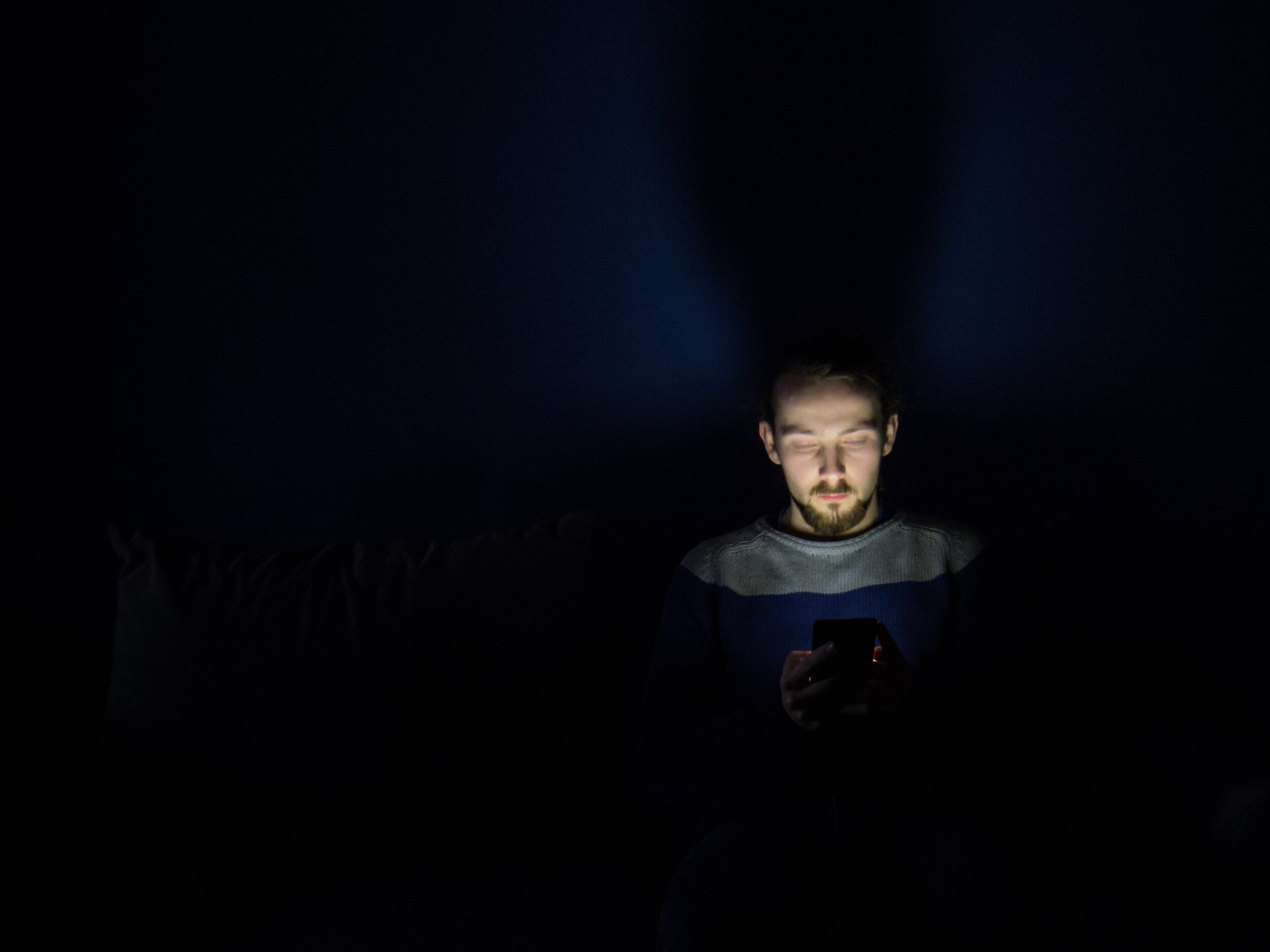
Indoors or outdoors, your exposure to light can affect wellness in many ways. Here, David Boultbee, a lighting expert, explains how different types of lighting can impact health and shares some tips that could transform your life.
1) Disrupting Your Circadian Rhythm
The blue light emitted from electronic screens can disrupt your circadian rhythm, commonly referred to as your body’s internal clock, and therefore affect your sleep. That’s because it delays the release of melatonin, a hormone that induces tiredness.
One of the best ways to tackle this problem is to avoid electronic screens in the two hours before bedtime. If you do need to use your phone, try switching to dark mode, which uses colours that are less likely to awaken your brain.
Bright lights in your home can also “trick” your mind into thinking its daytime and therefore not time to sleep, so it’s a good idea to use lamps or dimmers in the later hours. Red- or yellow-toned bulbs are also beneficial because these wavelengths do not interrupt melatonin production.
Find out more on the Sleep Foundation website.
2) Helping You To Absorb Vitamin D
Direct sunlight on the skin can stimulate the body to create vitamin D naturally. Vitamin D helps the body to absorb calcium and phosphate from food, minerals that are essential for healthy teeth, bones, and muscles.
In the UK, it’s generally only possible to generate vitamin D from sunlight in the spring/summer months, as there isn’t enough UVB in the autumn/winter rays. The amount of time it takes to generate the right amount also varies from person to person.
According to the NHS, “most people can make enough vitamin D from being out in the sun daily for short periods with their forearms, hands or lower legs uncovered and without sunscreen from late March or early April to the end of September, especially from 11am to 3pm”.
If you aren’t creating enough vitamin D from direct sunlight, it’s important to absorb the vitamin through your diet or supplements. Lots of foods, such as breakfast cereals, are fortified to help you achieve a healthy intake.
Learn more by reading Is Vitamin D The Secret Essential Hormone?
3) Lowering Your Mood
A lack of sunlight can lead to reduced serotonin, a hormone that affects mood, hunger, and sleep. This is one of the potential causes of seasonal affective disorder (SAD).
If it is not possible to get enough exposure to natural sunlight, you can use light therapy to stimulate serotonin production. This involves sitting near a light box that emits a bright light so that it can enter your eyes indirectly. You should speak to your doctor if you are interested in light therapy.
4) Affecting Your Eyesight
The UV rays in sunlight can damage your eyes. To protect them properly, it is important to wear sunglasses with the British Standard (BS EN ISO 12312-1:2013) or the CE mark whenever it is bright. This includes in the wintertime.
Contrary to popular belief, straining your eyes in low lighting does not harm your eyesight, according to The College of Optometrists. However, reading (or similar) in darkness is more difficult and can lead to headaches, so installing task lighting in your home and office can help.
There is also “no evidence” that viewing a screen damages your eyes, but adjusting your display and taking regular breaks can reduce discomfort and the risk of headaches.
5) Increasing Alertness
A study published in the Journal of Marketing Research revealed that diners in brightly lit restaurants were more likely to choose healthy meals than those seated in dimly lit areas. Another study, published in the Journal of Environmental Psychology, suggested that exposure to bright light helped participants to recover from mental fatigue.
Brighter lighting makes us feel more alert. This can help us to make better decisions and to be more productive. Using bright lights in our homes and workplaces could therefore play a key role in improving mindfulness and helping us lead a happier life.
To learn more about improving your health and wellness, book a consultation with Jacqueline Harvey.
For further updates follow CCH Live on Instagram and Facebook: @cchlivehealth
Sign up to the CCH Live newsletter here.
#lighting #lightexposure #lightingexpert #lighttherapy #boostyourmood #moodboosters #circadianrhytmn #seasonalaffectivedisorder #vitaminD #lightandwellness #lighthealth #DavidBoultbee #UltraLEDs